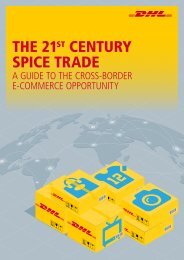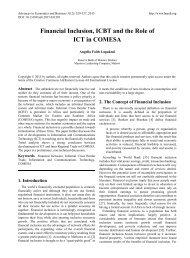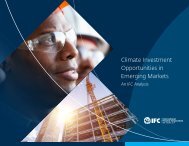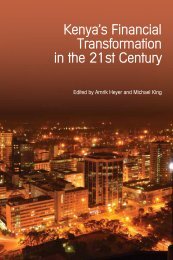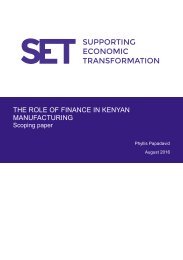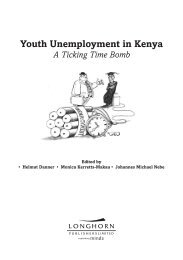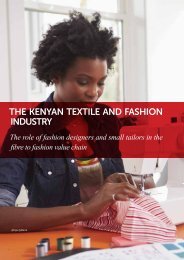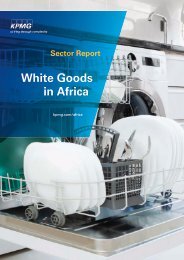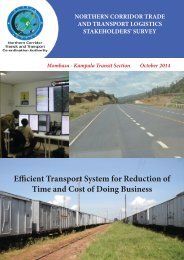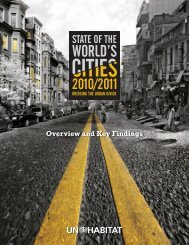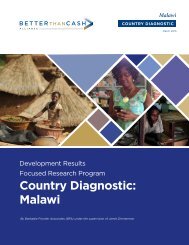FD
gvti301SEaf
gvti301SEaf
You also want an ePaper? Increase the reach of your titles
YUMPU automatically turns print PDFs into web optimized ePapers that Google loves.
“one size does not fit all” has become a cliché is due in no<br />
small part to the influence of Rodrik’s work. “We didn’t<br />
understand how right he was,” says David Wessel, a former<br />
Wall Street Journal economics writer now at the Brookings<br />
Institution’s Hutchins Center.<br />
Inside the ivy tower<br />
Rodrik has spent most of his professional life at Ivy League institutions.<br />
He has a bachelor’s degree from Harvard and master’s<br />
and PhD degrees from Princeton, followed by a teaching<br />
career at Harvard and Columbia.<br />
He was able to go from his native Turkey to Harvard<br />
because of his father’s success as a businessman. Like many<br />
countries in the 1970s, Turkey followed a policy of import<br />
substitution—imposing tariffs to keep out imports and substitute<br />
domestic products. Protected by these tariffs, his<br />
father’s ballpoint pen company was successful enough that<br />
Rodrik could contemplate studying in the United States. “I<br />
am the product of import substitution,” Rodrik has said.<br />
On his application to Harvard, he wrote that he wished to<br />
major in electrical engineering, unaware that the school then<br />
did not offer it as a major. Nevertheless, he has since written,<br />
he was admitted because one member of the admissions<br />
committee “somehow saw a flicker of hope” in his application<br />
and pushed his case “over the strenuous objections of others<br />
on the committee.”<br />
Shortly after arriving at Harvard in 1975, he decided to<br />
major in political science—and take a minor in economics<br />
due to his “father’s prodding.” His father, he says, “still had<br />
hopes that I would go to business school and do something<br />
useful in life.” In his senior year at Harvard, still “confused<br />
about his career goals,” he applied to six different graduate<br />
programs—some in economics and business, others in political<br />
science and international relations. He chose a master’s<br />
in public policy at the Woodrow Wilson School at Princeton<br />
and “had a great time,” but realized that he had “simply put<br />
off the decision” of whether to pursue a career in economics<br />
or political science.<br />
He remembers “well what settled it.” One day in the library<br />
he picked up copies of the flagship publications of the two<br />
disciplines, the American Political Science Review and the<br />
American Economic Review. The former was “written in<br />
English, the other in Greek”—that is, liberally sprinkled with<br />
the mathematical equations favored by economists. He says he<br />
realized that “if I did a PhD in economics, I would be able to<br />
read both journals, but that if I did a PhD in political science, it<br />
would be goodbye economics. That was my epiphany.”<br />
He was admitted to the economics department at Princeton<br />
in 1982, a year after his initial application, “more out of compassion<br />
than conviction,” he has written. A member of Princeton’s<br />
faculty, Peter Kenen, “was single-handedly responsible for my<br />
admission.” Some members on the admissions committee had<br />
concerns about Rodrik’s math skills but Kenen, with whom<br />
Rodrik had taken a course as a master’s student, prevailed on<br />
them to give him a chance.<br />
At Princeton, he wrote his dissertation under the noted<br />
economist Avinash Dixit (see “Fun and Games,” in the<br />
December 2010 F&D). “I’ve never seen anybody who’s a<br />
clearer thinker than him,” Rodrik has said. “There’s never<br />
been a paper that I’ve written that I haven’t thought, ‘What<br />
will Dixit think about this?’”<br />
Rodrik’s first job was at Harvard’s Kennedy School of<br />
Government in 1985. Except for stints at Columbia from<br />
1992 to 1996 and, more recently, at the Institute for Advanced<br />
Study in Princeton, New Jersey, he has been at Harvard for<br />
the past three decades. It is from within the confines of this<br />
ivy tower that Rodrik has launched the attacks that have<br />
changed the profession’s views and made his name.<br />
Taking on trade<br />
That there are gains from free trade is a core belief of economists.<br />
Trade theory shows that if countries specialize in making<br />
some products, and then exchange some of those products<br />
through imports and exports, they end up richer than if<br />
each country were to go it alone. But there is a catch. When<br />
the United States decides to specialize in producing Hollywood<br />
movies rather than textiles, its textile workers stand to<br />
lose. Not to worry, trade theorists respond, our analysis shows<br />
that the gains to the Hollywood producers will be sufficient to<br />
make up for the losses of the textile workers.<br />
Rodrik also emphasized that trade<br />
“fundamentally transforms the<br />
employment relationship.”<br />
In practice, though, losers seldom share in the winners’<br />
gains (redistribution in economic parlance). Rodrik says that<br />
“to this day, there is a tendency in the profession to overstate”<br />
the gains from trade while paying lip service to the need for<br />
redistribution. But trade theory shows that “the larger the net<br />
gains, the larger the redistribution [that is needed]. It is nonsensical<br />
to argue that the gains are large while the amount of<br />
redistribution is small.”<br />
In his 1997 monograph, “Has Globalization Gone Too<br />
Far?” Rodrik pointed to the failure to push redistribution<br />
seriously as one reason for the gap between economists and<br />
laypeople in their attitude toward trade.<br />
And he outlined several other tensions created by trade.<br />
Rodrik wrote that trade “is exposing a deep fault line between<br />
groups who have the skills and ability to flourish in global markets”<br />
and those who lack them. Without retraining or education,<br />
the latter would understandably be opposed to free trade.<br />
Rodrik also emphasized that trade “fundamentally transforms<br />
the employment relationship.” If workers can be more easily<br />
substituted for each other across national boundaries, “they<br />
have to incur greater instability in their earnings [and] their<br />
bargaining power erodes.” Trade could also “undermine the<br />
norms implicit” in domestic production, for instance, if child<br />
labor in a foreign producer displaced U.S. workers.<br />
Rodrik concluded that the cumulative consequences of<br />
these tensions could end up “solidifying a new set of class<br />
Finance & Development June 2016 3



